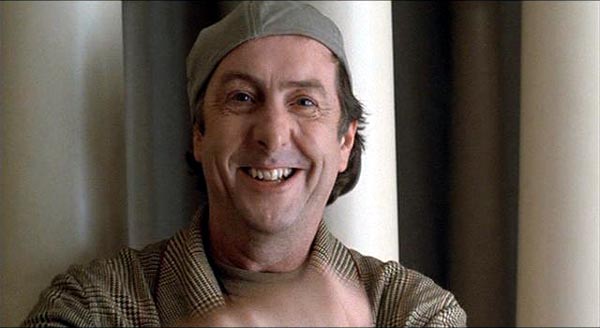50. An Alan Smithee Film: Burn Hollywood Burn (1998) - 0 Stars
Director: Alan Smithee

Burn Hollywood Burn: An Alan Smithee Film, a movie about a disastrous film production, was cursed from the beginning. "Alan Smithee" is a director's credit assigned to a film when the film's director pulls his name off the project. Ironically, director Arthur Hiller (Love Story, Plaza Suite) was so displeased with the film that he had his own name withdrawn from the credits, so Burn Hollywood Burn: An Alan Smithee Film has "Alan Smithee" credited as its director. Yes, the film was that bad. Roger Ebert summed it up well in his review: Sophomores in a film class could make a better film than this. Hell, I have a movie here by Les Brown, a kid who looks about 12 and filmed a thriller in his mother's basement, faking a fight scene by wrestling with a dummy. If I locked you in a room with both movies, you'd end up looking at the kid's.
49. Un Chien Andalou (1928) -
Directors: Luis Bunuel and Salvador Dali

Luis Bunuel is one of the 20th Century's most celebrated directors. Ebert wrote that Bunuels films possessed a quality so distinctive that, like those of Alfred Hitchcock and Federico Fellini, they could be identified almost immediately. Un Chien Andalou (1928) is one of the most famous short films ever made. Bunuel and artist Salvador Dali set out to create a surrealist film that was meaningless and incapable of being understood. "It assaults old and unconscious habits of movie going," Ebert wrote. "It is disturbing, frustrating, maddening. It seems without purpose (and yet how much purpose, really, is there in seeing most of the movies we attend?). There is wry humor in it, and a cheerful willingness to offend. Most members of today's audiences are not offended, and maybe that means the surrealists won their revolution: they demonstrated that art (and life) need not follow obediently within narrow restrictions that have been decreed since time immemorial. And that in a film that is alive and not mummified by convention, you never know what you might see when you look out the window."
48. Belle de Jour (1967) -
Director: Luis Bunuel

Luis Bunuel's film about a housewife named Severine who works in a brothel part time struck out at most of society's conventions at the time. "Her secret is that she has a wild fantasy life," Ebert wrote, "and Bunuel cuts between her enigmatic smile and what she is thinking. Bunuel celebrated his own fetishes, always reserving a leading role in his films for feet and shoes, and he understood that fetishes have no meaning except that they are fetishes." Ebert praised the film as "elegantly mounted -- costumes, settings, decor, hair, clothes--and languorous in its pacing." When a film struck him as very good, Ebert often dug deep into a film's subtext, thematic structure and details. But quite often, in an effort not to read anything into a film that the filmmakers did not intend, he would refer to a detail and let it lie there, unremarked upon, allowing the reader to draw his own conclusions: "The subtle use of meows on the soundtrack; what do they represent?" Ebert asks. "Only Severine knows."
47. Heavens Gate (1981) -
½
Director: Michael Cimino

The 1980 film Heavens Gate is legendary for its running time of three hours and thirty-nine minutes. At 152 words, Heavens Gate ranks among Roger Eberts shortest film reviews.
The ridiculous scenes are endless, he wrote. It is the most scandalous cinematic waste I have ever seen, and remember, I've seen Paint Your Wagon.



